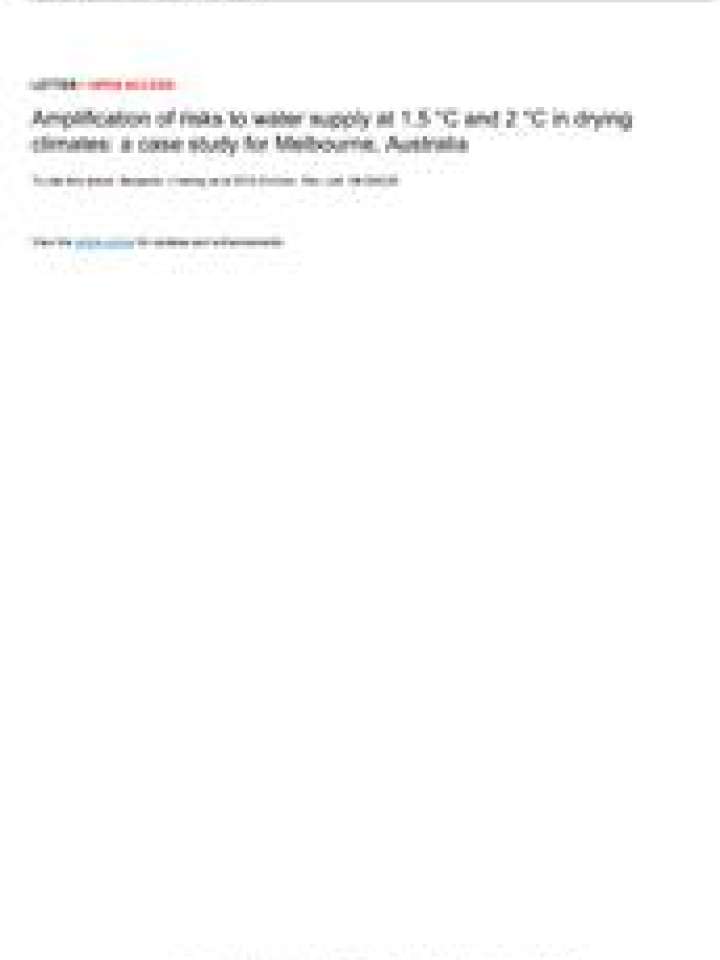Amplification of risks to water supply at 1.5°C and 2°C in drying climates: a case study for Melbourne, Australia
Human-induced climate change poses a major threat to the reliable water supply in many highly populated regions. Here, the authors of this report combine hydrological and climate model simulations to evaluate risks to the water supply under projected shifts in the climate at the Paris Agreement warming levels. Modelling the primary surface water sources for Melbourne, Australia, the authors project that the risk of severe water supply shortage to the climate-dependent portion of the system increases substantially as global warming increases from 1.5 °C to 2.0 °C. Risks are further exacerbated by increases in water demand but substantially ameliorated by supply augmentation from desalination.
This research demonstrates that reductions in precipitation, rising temperature and growth in water demand combine to substantially amplify the risk of severe water supply shortage under near-term global warming in the absence of a climate-independent supply. This risk amplification is not as apparent in assessments based on meteorological drought alone. With the diminishing opportunity of meeting the 1.5 °C Paris target, the study highlights the need to accelerate greenhouse gas mitigation efforts to reduce risks to climate-dependent water supply systems.
Explore further
